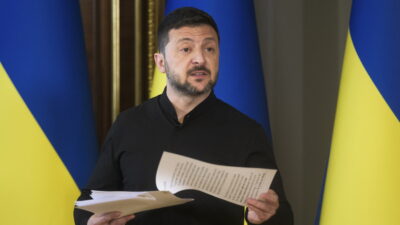Anastasios Lavrentzos: Erdogan is doing his job, the Greek elites are not doing theirs
10/06/2020
Greece can annul Turkey’s extortionist tactics if Greek elites can overcome their delusions. All the signs portend that as concerns Greek-Turkish relations “things have come to a head”, as the request of the state oil company TRAO for conducting seismic surveys within the Greek continental shelf was recently published in the Turkish Government Gazette.
This action is an escalation of Turkish provocations that began last November. The beginning can be traced back to the illegal Turkey-Libya MoU, through which the two countries shared the Greek EEZ from Kastellorizo to Crete. This was followed by the submission of the agreement to the UN and now Turkey seems ready to proceed with research and later drilling in the area.
So far, the Greek side’s reaction to the Turkish provocations has been lukewarm. It sought the full support of the EU and the United States, and sought refuge in international law. As for the interior of the country, the appeal to The Hague was presented as a solution by various circles. Even the prime minister said, “If we can’t get along with Turkey, let’s go to The Hague and be ready to accept any decision.”
It is also a continuation of the current government’s policy of idiosyncratic appeasement, which is not trying to gain time to build a deterrent framework, but to shift the problem. In the face of the declared goal of avoiding a conflict, Athens seems to be pursuing a unilateral policy of granting certain of its sovereign rights through The Hague, in exchange for the recognition of the rest by Turkey. In other words, Athens already appears to have accepted Turkey as an arbitrator of its sovereign rights and is simply seeking an agreement that will secure the rights that Ankara allows it to have at this stage.
International law as a convenient illusion
This policy stems from the unbridled tendency of the Greek elites to back down in the face of Turkey and their self-confinement within the illusion of international law. In fact, what Athens is seeking is to exchange some of its rights for a Turkish signature. But in doing so, Greece is simply overestimating the power of Ankara’s signature in an attempt to deceive itself. Indeed, even if one were to enter into such a logic, one would deliberately overlook the fact that Turkey is a state that has never, in earnest, followed up on with its agreements.
But insisting on the supposed omnipotence of international law is a dangerous delusion for two reasons. The first is that international law has never been able to prevent the actions of the powerful. The second reason is that while the Greek side is constantly invoking international law, it does not apply it to itself. Thus, it is characteristic that today Greece is perhaps the only country in the world that has not expanded its territorial waters to 12 nautical miles. It is still one of the few countries that has not delineating an EEZ.
So how does Greece stand up to the omnipotence of international law when it avoids applying it? Isn’t this a confession that international developments are determined by power relations? Greece should have done everything its could all these years to improve these correlations. But as a nation-state, it did the opposite. So today the political system, which has essentially brought us here, calls on us to make a painful compromise.
It is a deeply humiliating compromise. But above all, it is ineffective. Because what Pericles said in the Megarian resolution for the Spartans is always true: “if we give in to these demands now, they will ask us for something even bigger the day after.” And how could it be otherwise? After all, the dilemma of “war or submission” will be applied on the very next day of the “reasonable” compromise, which Athens is dreaming of.
Greece has potential, the Greek elites have no will
The above proves that the only path that exists for Greece is the path of defending its rights. However, the Greek political system itself has undermined this path over time. It did so by subjecting the country to an economic oversight. It has done so by neglecting the Armed Forces, which for a decade have not acquired any new major weapon system. It continues to do so under the current government, which has remained inactive when Turkey drilled in the Cypriot EEZ, or when it violated the Greek EEZ with the illegal Turkish-Libyan MoU.
Limiting ourselves to the present, in recent years an overall strategic immobility of Athens has become apparent. And yet, options do exist. The possibility of an anti-Turkish alliance in the Eastern Mediterranean, of which Greece should be the leading country, as being the most threatened, is visible. An alliance that includes at least the countries of the recent five-day conference (Greece, Cyprus, Egypt, France, UAE) that can be expanded by deepening cooperation with Israel.
Let us not lose sight of the fact that Israel, as a “nation-state”, cannot accept a hegemonic and expansionist Turkey when it is already surrounded by potentially hostile Arab populations. A possible fall of the Sisi regime in Egypt would even make Israel trapped in a “bottle” whose “neck” is the Cyprus-Greece axis.
All this shows that for Greece strategic alliances and choices exist. However, in order to have allies, you must have a sufficient geopolitical clout and, above all, the will to function as an active and reliable partner. At a more tactical level, Greece should have already taken various short-term and medium-term steps to strengthen its deterrence. Actions from increasing military service, increasing the availability rates of major weapons systems, to targeted defense related purchases that would directly upgrade the capabilities of the Armed Forces.
Strengthening Greek deterrence
On a more medium-term horizon, the restructuring of forces and defense doctrine should be considered, with the use of new technologies, which at low cost can dramatically increase Greek detterent capabilities. The implementation of a plan to restructure the Greek defense industry in areas of technological excellence should have already begun. Greece needs it for defense and for the economic reconstruction of the country. Greece also needs it to repatriate young scientists who have fled abroad in their hundreds of thousands, to find a brighter economic future.
Fortunately, new technologies do not require large funds and previous industrial experience. They mainly require human capital, which Greece already possesses. For example, it is unthinkable for Turkey today to use hundreds of unmanned aerial vehicles (UAVs) of its own construction and for Greece not to have developed such capabilities, but also capabilities to shoot down Turkish UAVs.
These are the things that need to be done today. Unless the Greek political leadership has decided that Greece will continue to exist as an economically dependent province of the EU, without its own independent foreign policy. A province that will be heavily populated by African-Asian immigrant flows and will allow its sovereign rights to be mutilated, limiting itself to just issuing diplomatic protests.
The Greek political system today must realize its historical responsibilities and organize the only path the country has: the path of resistance. And this, not only because the History of the country dictates so, but also because no compromise will solve the problem. So let the Athenian elites leave the plans for “honest compromises” to Ankara. Only Greek determination can bring Turkey to its senses.





